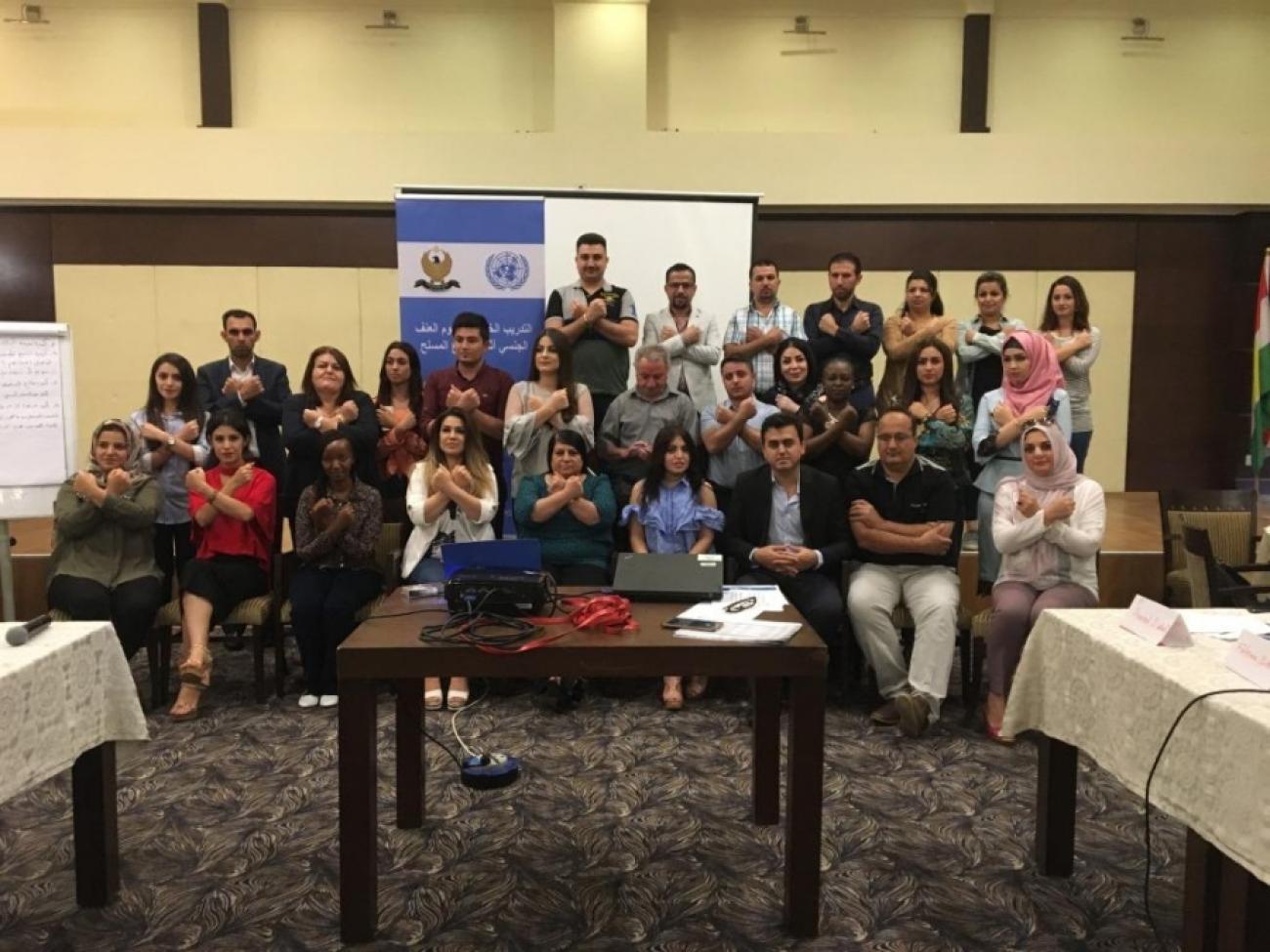Emerging gripping stories from survivors of sexual violence crimes, surviving the mayhem of ISIS attacks, underpin the depth of work that needs urgent attention from the inter-personal front to the legal, economic and social spheres.
“I was raped several times and now I feel very inferior in my community after I returned from an ISIL-controlled area,” a female survivor testified to Nahla Saido Khalaf, a social worker at Emma Organization. Emma provides economic skills trainings in handy craft courses and livestock and bee-keeping as sources of potential livelihood for their beneficiaries.
Laith Ahmed Moussa, a social worker in Duhok, tells of a heart-wrenching story of a female survivor who escaped from ISIL with her baby. “When her family was contacted, they refused the baby, but she refused to abandon her child.”
In September 2017, UNAMI in collaboration with UNFPA and UNICEF, convened a three-day workshop with NGOs in Duhok, to examine and discuss a spectrum of issues on conflict-related sexual violence (CRSV), from women, peace and security to the consequences of the conflict with ISIL from a gender perspective at the political, social, economic and humanitarian levels.
To ensure that the right support is being provided on one hand and relevant actions taken on the other, the profiles of the victims, perpetrators and potential threats were examined, whereas means of addressing the multi-sectoral approaches on issues of healthcare, mental health and psychosocial support were also addressed.
Survivors of grave sexual violence, are also seeking psycho-social, medical and economic support, to help restore and develop their lives in safe communities.
“The survivors we are dealing with fear the uncertainty of their future in re-integrating into their communities and recovering from their trauma. They need psycho-social support and access to job opportunities. Some also need education and economical support to improve their situation,” Laith explained.
Firas Haji Omer, Project Manager of Yazda Educational, which organizes educational and psycho-social activities to fill that need and rehabilitate them into their communities, spoke of an 8-year-old girl whom he is dealing with who lost her entire family. “She is the only survivor after ISIL attacked her village,” he said, pointing out that the priorities for such survivors are care and education.
Nedhal Waleed Lewis, a teacher, activist and head of the Peace Ambassadors Center, explained that his organization does not only provide vocational skills such as sewing, hairdressing, mechanics, agriculture and poultry, but also invests time in building the self-confidence of the survivors. “For many of them, it is not only how ISIL treated them, but how they are being perceived by people in their communities after they managed to escape,” she added.
Yohanna Is’haq Zia, a retiree from the Ninewa Education Directorate, is keen to see them return to their previous employment or engage in training courses that would open-up employment opportunities for them.
At the end of the third day, the participants in unison called for increased basic services and security for the survivors, as they pledged to continue engaging political, religious and social ‘actors’ to make changes that will activate a positive socio-political and economic environment for survivors of conflict-related sexual violence.


